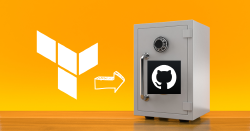


In May of 2018, I decided to start my own company (Ned in the Cloud LLC), quit my lucrative consulting job, and hang my own shingle for content creation, education, and technical writing. Well, that’s not entirely accurate. I actually decided to strike out on my own in September of 2018, it just took me until May of 2019 to do it. I won’t rehash the entire thing now. If you want to hear the whole story, check out my detailed post or this episode of The Full Stack Journey podcast.
So how are things going six months later? In a word. Awesome. That’s all you wanted to know? Sweet, thanks for reading.
.
..
…
OH. You’re still here? Neat! Here’s what’s been going on since my post back in August.
I started the Day Two Cloud (D2C) podcast back in beginning of 2019 in the Packet Pushers Community channel for podcasts. In May of 2019, after about eight episodes, D2C graduated to its own channel and received its own webpage. At that point, I was still publishing on a fortnightly cadence and handling the hosting duties solo. Starting in November, D2C is moving to a weekly cadence and I am joined by Ethan Banks as my cohost. The podcast now has its own website, Twitter handle, and email address. It also has its own mascot, the mischievous Nimbie.

On the business side of things, D2C is now going to have sponsored episodes and ad-spots. I suppose this makes me a professional podcaster? I know some people bristle at the idea of sponsorships and ad-spots, and I get that. I bristle at the idea of not being able to feed my family. Since content creation is now my full-time gig, I need to be able to monetize the content I am creating and that includes podcasts. That being said, I am going to make every effort to ensure that all sponsored podcasts are delivering interesting and informative content. If vendors are just there to make a hard pitch for their product, then I am not interested. We have the luxury of choosing our sponsors, and they are briefed ahead of time what we are looking for in an episode.
Don’t think I’m living up to my end of the bargain? Let me know!
Cloud Field Day is a source of joy and opportunity for me. Joy because I get to spend three days with the other delegates, who are - to a person - amazing individuals. Cloud Field Day 6 was no exception. In addition to finally meeting Nate Avery, I also was introduced to awesome individuals like Larry Smith Jr., Chris Williams, and Rita Younger. Seriously, go check out the CFD6 page and follow everyone on it. You’ll be glad you did.
Many of the delegates at CFD6 are also full-time influencers and content creators. Being together gives us a chance to bounce around ideas and band together for new projects. This has been especially helpful for me, as people like Keith Townsend are full of incredibly useful and practical advice that has helped me grow my business in a healthy way.
Time management continues to be a major challenge for me in two important ways. Actually managing my time, and accepting too much work.
I had such bold dreams of having a highly organized and efficient time management system that would track all of my projects and make me a more efficient revenue generating machine. As usual, the best laid plans… are exactly that. In my three month post, I mentioned using Trello and Toggl to track my projects and manage my time. Three months later, I use Trello for the Day Two Cloud podcast only and I use Toggl to track my time for one client. This is not the time management utopia I dreamed of, and it’s likely that it never will be.
The fact of the matter is that I have no appetite for complicated project management tools or activity tracking. The biggest challenge is one of friction. The more effort it takes me to engage with a system, the lower the chance I will continue to use that system unless there is some outside motivating force.
I use Trello b/c Packet Pushers uses Trello and I need to coordinate with them and my D2C cohost. I stopped using Trello for everything else b/c no one else was collaborating on those projects. I was the only one involved, and I know what I need to do.
It’s the same with Toggl. I was trying to track how long it takes me to create and produce courses for Pluralsight, but ultimately I decided it wasn’t worth the effort. I have a rough idea of how long it takes me to produce a given course, and remembering to open Toggl each time I was doing Pluralsight work was too much of a mental effort, i.e. the friction was too high. Plus, it didn’t capture the times I was working on the course, but not at my computer. When I am trying to think of a good demo or how to organize a module, I go out for a run or think about it in the shower. Toggl isn’t capturing that information, and I don’t really care.
I am using Toggl for one client that I am billing by the hour. I have to track my time to invoice properly, and thus there is an external force to overcome the friction of the tool.
The other aspect of time management that I am still struggling with is being an accurate judge of my bandwidth. There’s a few factors at play here.
When I quit my full-time job and went independent, it was hella scary. Before quitting, I was not responsible for finding my work. That job belonged to someone else. Now I am responsible for sourcing all of my work and getting it done. I have this irrational fear that suddenly I won’t be able to find more work. If something comes along, I better agree to do it, because who knows when the next opportunity will come along. As I spend more time as an independent, I am realizing that work for competent people is never in short supply, and turning down work is the only way to stay sane.
Which leads me to the problem of saying “no.” I don’t like to say no to people. I like to be helpful, and if someone is reaching out for assistance, I want to be able to jump in and get the job done. That’s not realistic, and is 100% the road to burnout. Saying “yes” is also the path of least resistance. Saying “no” requires confrontation, and I do not like confrontation. I’m happy to say that I have turned down four major opportunities in the last three months. I’m sad to say that I probably should have turned down more. What can I say? I’m a work in progress.
There is also the matter of FOMO. Technology moves at a ridiculous pace, and there are always more things that I want to dive into than there are hours in the day. For instance, I want to dive deeper into Morpheus Data, NetApp NKS, VMware Project Pacific, GoLang programming, Azure Stack updates, and using Git more effectively. And that’s just a few off the top of my head. When there is a paid opportunity to learn more about a topic I am already interested in, it’s that much harder to say “no.” I worry that I am going to miss the boat on a major technology trend, instead of being front and center for the next big thing. And I need to get over that.
One of my main concerns with going independent and working from home 100% of the time is that I wouldn’t be getting enough social time with other human beings. My initial idea was to go out to lunch or breakfast with someone every week. I was studious about this in the first quarter, but since then I have become much more slack about it. I can feel myself making excuses for not leaving the house. I’m too busy. There’s stuff I need to do around the house. It’s raining.
There’s a slippery slope here that I need to avoid. What I really need to do is stop accepting so much work and start having more lunch dates. It’s not as if there’s no one nearby to have lunch with. I just need to go through the effort of actually doing it.
In summary, business at Ned in the Cloud is good. People are mostly awesome. And the future looks bright. My goals for the next six months are to accept less work, get out more, and keep growing the Day Two Cloud podcast. The next check-in post will be at the one year mark. Let’s see how I’m doing then.
Creating Your First Terraform Repository
March 4, 2024

Comparing OpenTofu and Terraform
January 22, 2024

January 17, 2024
